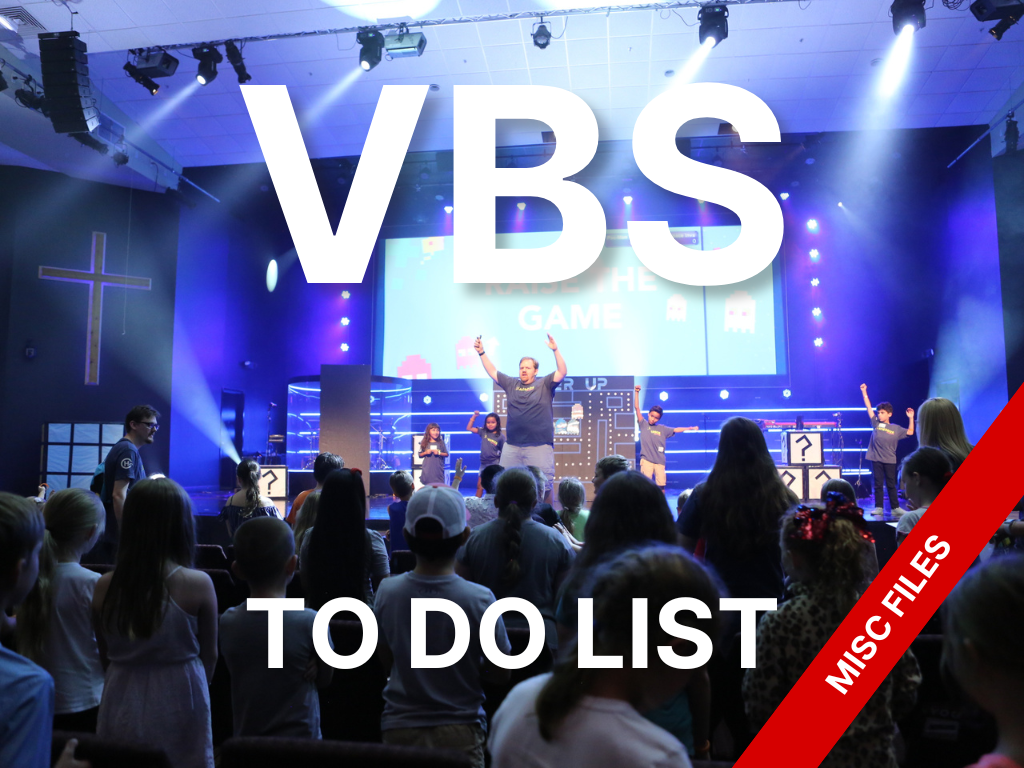When should kids move to the next grade in kidmin?
Photo by BBC Creative on Unsplash
It’s coming to the end of the school year, and you’re probably thinking about promoting your kids to the next grade.
But when is the best time?
It’s a common question I’ve seen for years in Facebook groups. Someone looking for a change asks when everyone promotes their kids to the next grade and then a slew of comments ensues advocating for the beginning or the end of the summer.
In my highly unscientific perusing of these comments, I’d say the answer is about 50/50.
I don’t think there is a right or wrong way to do this and in my own ministry, I’ve experimented with both and see the pros and cons of each.
Here’s what I’ve learned.
Promote at the beginning of the summer.
If you promote at the beginning of the summer, then your oldest kids, let’s say fifth graders, are mostly happy. A lot of them are already out the door ready to move to youth. They don’t want to be with the little ones anymore.
Moving kids up at this time works well because you can do lock-ins and parties to celebrate the move and help transition them to the next ministry.
Also, for the kids that aren’t quite ready to move up, you have the summer to ease them out of the ministry and into the next.
However, your youngest kids may not yet be ready for “big kids church.”
Unless they’ve attended preschool or your preschool ministry is very similar to elementary, these kids will need to be trained on the basics like, sitting quietly, raising their hand, and staying in the appropriate areas during games and worship.
Like the older kids, some are ready for this change, but many may not be, and you’ll have to have volunteers trained and ready to accommodate them.
Promote at the end of the summer.
To answer the cons above, some ministries decide to promote at the end of the summer. This gives you a buffer to assimilate the kids moving through the ministry into their new areas, train your volunteers, and work with the rhythm of their lives as they start new schools, new classes, and now, new church.
The kindergartners catch on faster because you are reinforcing the social behaviors they’re learning throughout the week instead of introducing them.
Also, your small group volunteers get a little break before they have to welcome all new kids into their group. They can take vacation, or take the whole summer off before jumping back in for another school year.
For the older kids that still want to participate in your summer events like camp and VBS, they still can because their age is included. They’re not bouncing back and forth between youth and kids, giving you more time to say goodbye.
The downside to promoting at the end of summer is throwing parties and lock-ins are difficult. Parents are trying to get their kids back on schedule, many take a final vacation before everything settles down, and kids are busy with orientations and school supply shopping.
Also, you may lose your oldest kids before you’re ready and not truly transition them out of your ministry. This is a pivotal time in their life and many kids walk away from their faith during middle school. It’s imperative that they transition well into the next ministry where they can find a place to belong.
Let me offer a different way.
The Hybrid Model
I think it’s possible to have the best of both worlds. In everyone’s question and the following answers, it is assumed that everyone moves up at the same time.
But it doesn’t have to be that way.
What if you moved up your older kids at the beginning of the summer and your younger kids at the end?
This way you can say goodbye to the older kids when they want to go. Your focus isn't split during your transition events and you can orient the parents on their new relevant ministry.
The students can still attend your summer events if they want, and the ones who need a little more time to adjust have the summer to do so.
When the end of the summer comes around, you can then move up the youngest kids. You now have the oldest ones out, so you can retrain the room on how things should be done without your oldest ones complaining that it’s “too kiddy.”
You can orient the young parents to the changes from preschool to elementary and maybe pick up some new volunteers along the way.
On transition Sunday, you can truly welcome the new kids, focusing on them and making sure they have fun and learn about Jesus.
Whatever you end up doing, be sure to communicate well with your church, your volunteers, and especially your parents. As I said before, most middle schoolers leave at transition times, and this is true for kindergartners as well.
You want to make sure both kids and parents know what’s coming and how it affects them. You may have to hold some hands, while others you may need to kick them out of the nest. Either way you want to communicate it’s what’s best for them.
Sometimes finding solutions to problems means taking a step back and challenging assumptions. Trying something completely different can be scary. It will be messy the first time around, but if you learn from those mistakes, you’ll be far more successful in the years to come as you do what's best for you, the ministry and most importantly the kids.




To have a great Easter Outreach, you need to have a plan. This field tested and approved Egg Hunt Service Schedule will give you the outline your need for your outreach.